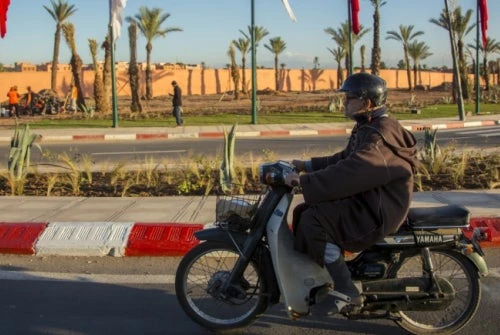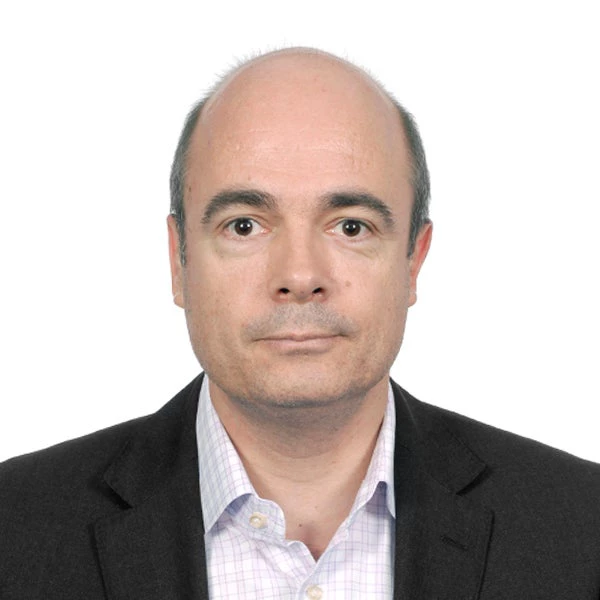 In his 2014 annual address known as the ‘Throne speech’, King Mohammed VI of Morocco focused on the less visible but critical aspects of development such as the quality of institutions, the quality of learning, and the quality of interpersonal relations in society. This speech set wheels in motion that have culminated in the launch of the 2017 Economic Memorandum, entitled
Morocco 2040 – Emerging by Investing in Intangible Capital. Taking its original inspiration from the King’s speech, the new report looks at Morocco’s future prosperity from the perspective of building its institutional, human and social capital.
In his 2014 annual address known as the ‘Throne speech’, King Mohammed VI of Morocco focused on the less visible but critical aspects of development such as the quality of institutions, the quality of learning, and the quality of interpersonal relations in society. This speech set wheels in motion that have culminated in the launch of the 2017 Economic Memorandum, entitled
Morocco 2040 – Emerging by Investing in Intangible Capital. Taking its original inspiration from the King’s speech, the new report looks at Morocco’s future prosperity from the perspective of building its institutional, human and social capital.
The report is an acknowledgement that the fate of the next generation of Moroccans is likely to be decided more by “what we don’t see” than by “what we see”. More by the swiftness and fairness of justice than the speed of the transport system; more by the degree of market competition than the number of industrial zones; more by the learning atmosphere in the classroom than the number of schools in the country. Yet addressing the “soft infrastructure” of development is considerably more complex and challenging than addressing its hard infrastructure. In other words, it is infinitely easier and faster to build the next highway extension, energy plant, or automobile factory than to build the interpersonal trust, individual freedom and responsibility, and the sense of civic duty that truly underpin the process of development.
A half full glass
Morocco has come a long way in the last 15 years in improving Moroccans’ living conditions, modernizing physical infrastructure, and diversifying its economy. Successful sectoral strategies were launched to develop value chains, improve the competitiveness and productivity of key parts of the economy and increase revenues.
Yet, although growth has been sustained, it has not been high and inclusive enough. Youth, especially those in underdeveloped or lagging regions, continue to find it hard to acquire technical skills, to find a job and be economically independent. Women, in urban areas even more than in rural, thinly participate in the labor market due to a combination of cultural norms, lack of adequate infrastructure and poor labor incentives.
Filling the glass
Achieving faster and more inclusive economic growth is nevertheless within reach. Preparing the next generation of well-educated and skilled Moroccans and delivering to them quality services from early childhood to old age will set the country in the right development path and eventually yield positive outcomes over the long term. As Bill Gates once emphasized: “ In the long run, your human capital is your main base of competition. Your leading indicator of where you’re going to be in 20 years from now is how well you’re doing in your education system”.
The growth potential of Morocco (like that of most developing countries in the process of catching up with developed economies) is considerable. However, the realization of this potential is constrained by multiple suboptimal equilibria in terms of political economy that have been cemented by history and are evolving only very gradually. Like the women excluded from the labor market or the youth excluded from learning opportunities, the Moroccan economy is held back by a number of often intangible constraints. Many of these involve social and institutional relationships that are not evolving fast enough. Hence, the need for focusing on the reforms to alleviate these constraints.
What the Morocco 2017 Economic Memorandum proposes is a pathway to sustainable catch-up economic growth. It proposes to turn Morocco’s assets on the political level (the stability of its leadership), institutional level (the values and principles enshrined in the 2011 Constitution), and economic, social and environmental levels (the prospects of a Deep and Comprehensive Free Trade Agreement with the European Union) into drivers to build its intangible capital.
Indeed, in this age of the knowledge economy and digital revolution, the wealth of nations is less the outcome of the mere cumulative volume of labor or physical capital than that of the quality of institutions, expertise and knowledge, and collective action standards. Ultimately, these drivers also form the best vectors for strengthening economic and social cohesion and propelling Morocco on a sustainable and inclusive convergence path toward developed nations.


Join the Conversation